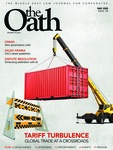Iraq jumpstarts its labour legislation

The Iraqi summer is notorious for imposing scorching heat. With record temperatures topping 50 degrees Celsius in August 2015, thousands of Iraqis took to the streets to direct their frustrations at the central government for abysmal electricity and public services. On August 11, 2015, the Iraqi Parliament sought to allay these concerns by swiftly passing Prime Minister Haider Al-Abbadi’s reforms package.
Having overwhelming public support behind him, the emboldened Prime Minister secured enough votes from Iraqi MPs to enact a new labour law to replace the old one (the “Labour Law”). The old labour law stood still for almost 30 years with little changes despite tectonic shifts in Iraq’s economic and investment policies since 2003. After being published in the Official Gazette on 9 November 2015, the Labour Law is due to take effect on 9 February 2016.
The Labour Law introduces new types of employment relationships, and it extends paid holidays while imposing new financial penalties on employers who engage expatriate employees without a work permit. The employment relationship test has also widened to capture indirect employment arrangements. The dispute resolution mechanism has been overhauled, but also noteworthy is the courts’ new express powers to award compensation in wrongful termination cases under a clear formula.
The burning question is whether the new Labour Law is sufficiently modern to aptly deal with matters relevant to foreign expertise and local talent, or was this missed opportunity to introduce measures that would naturally create the kind of employment environment sought after by foreign investors. Clearly, this is one of several standards the Labour Law can be measured against. But, even on that level, the answer falls somewhere between satisfactory and needs improvement.
Commentary by Mohamed Khanaty, senior associate – Iraq, Eversheds

























































































































